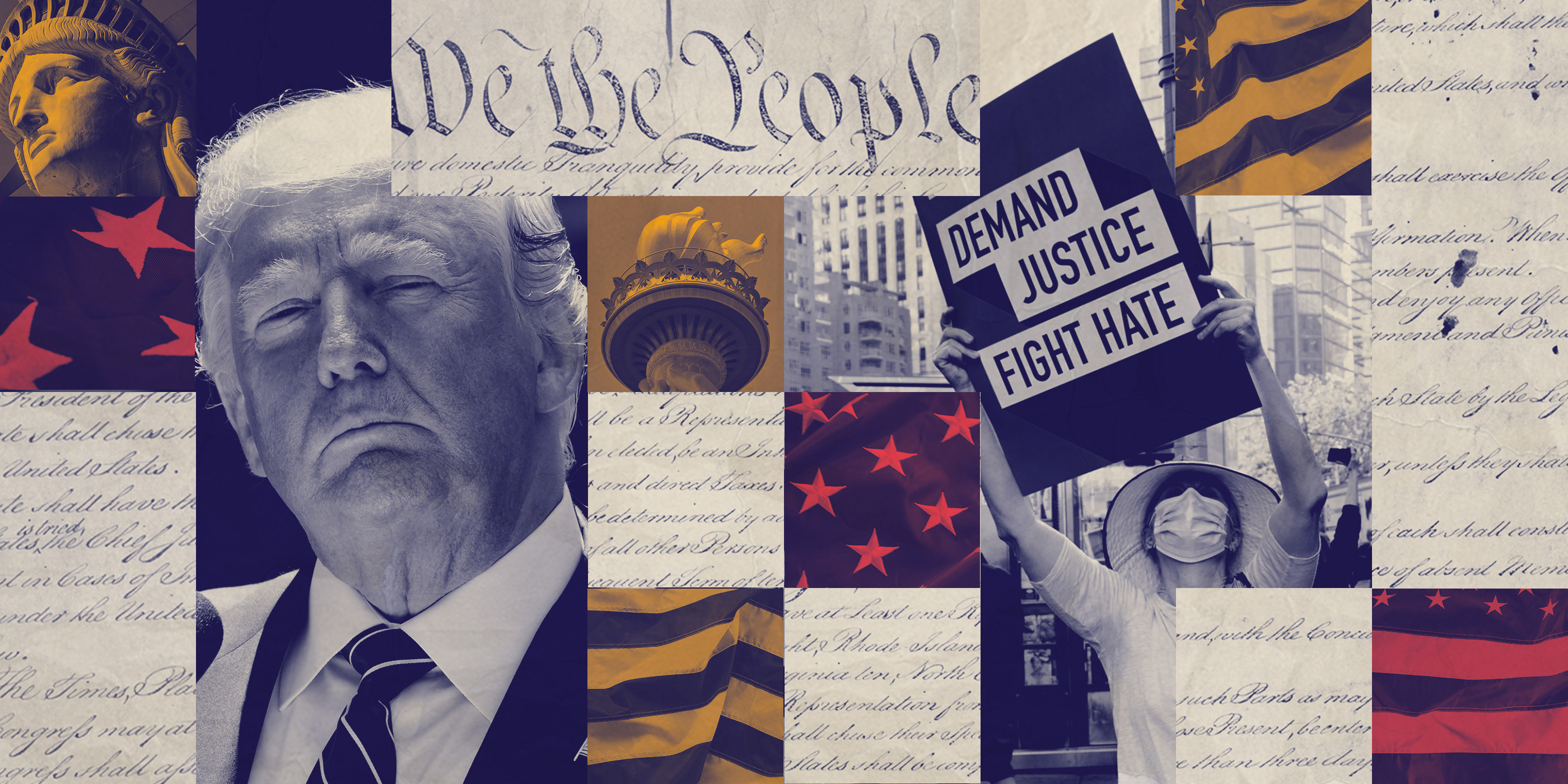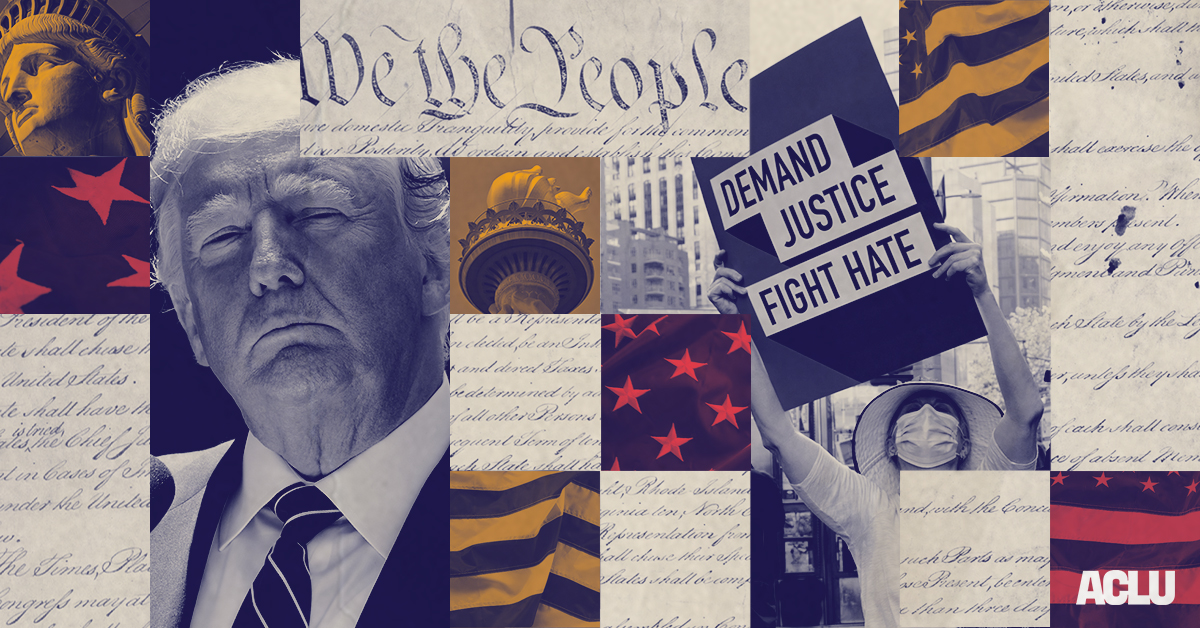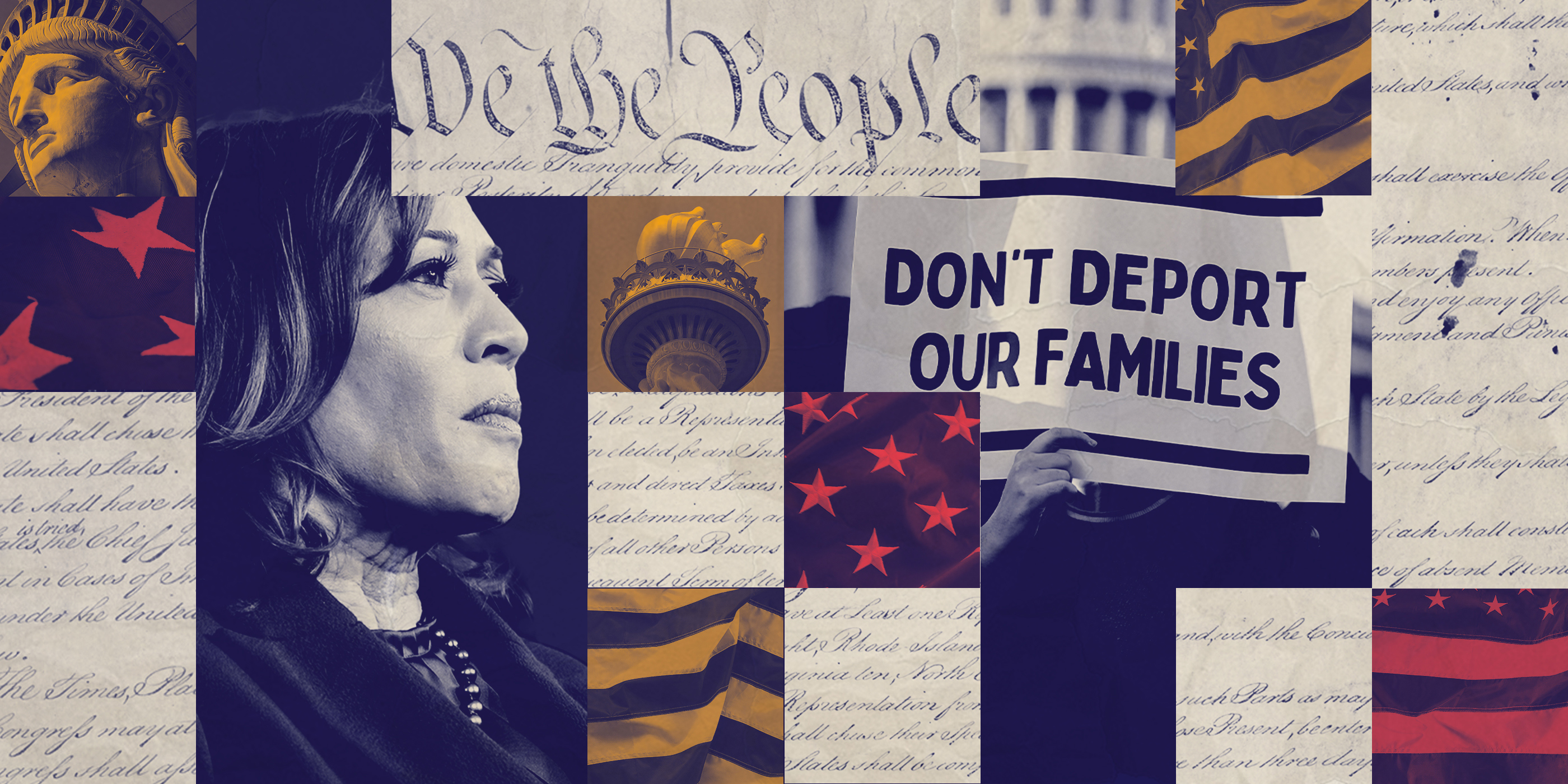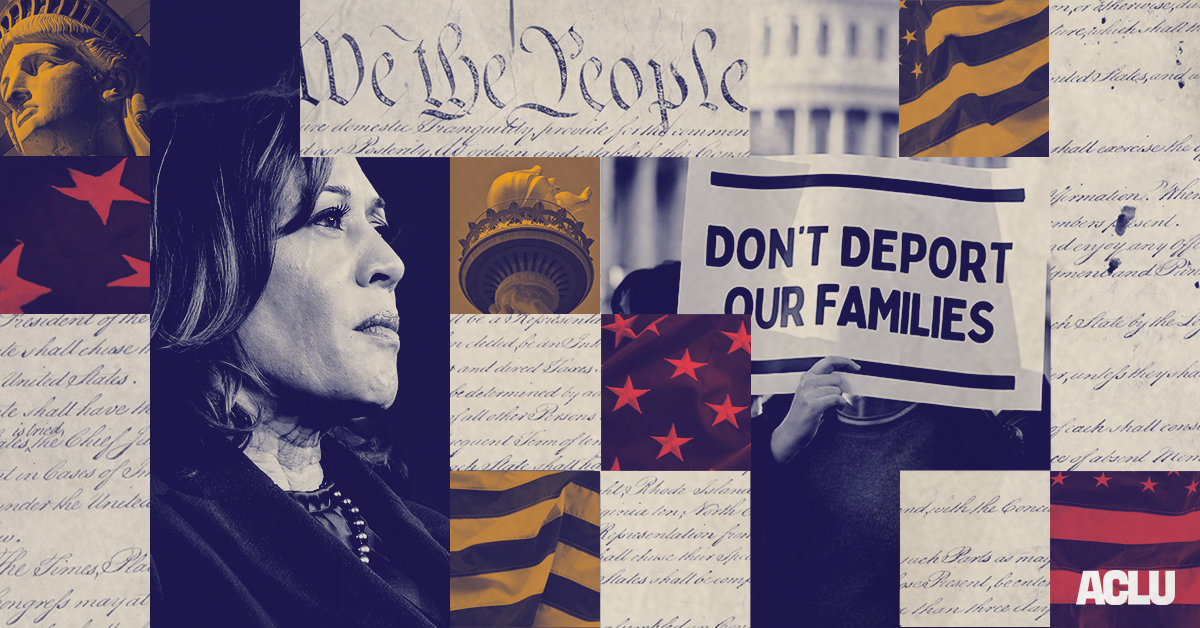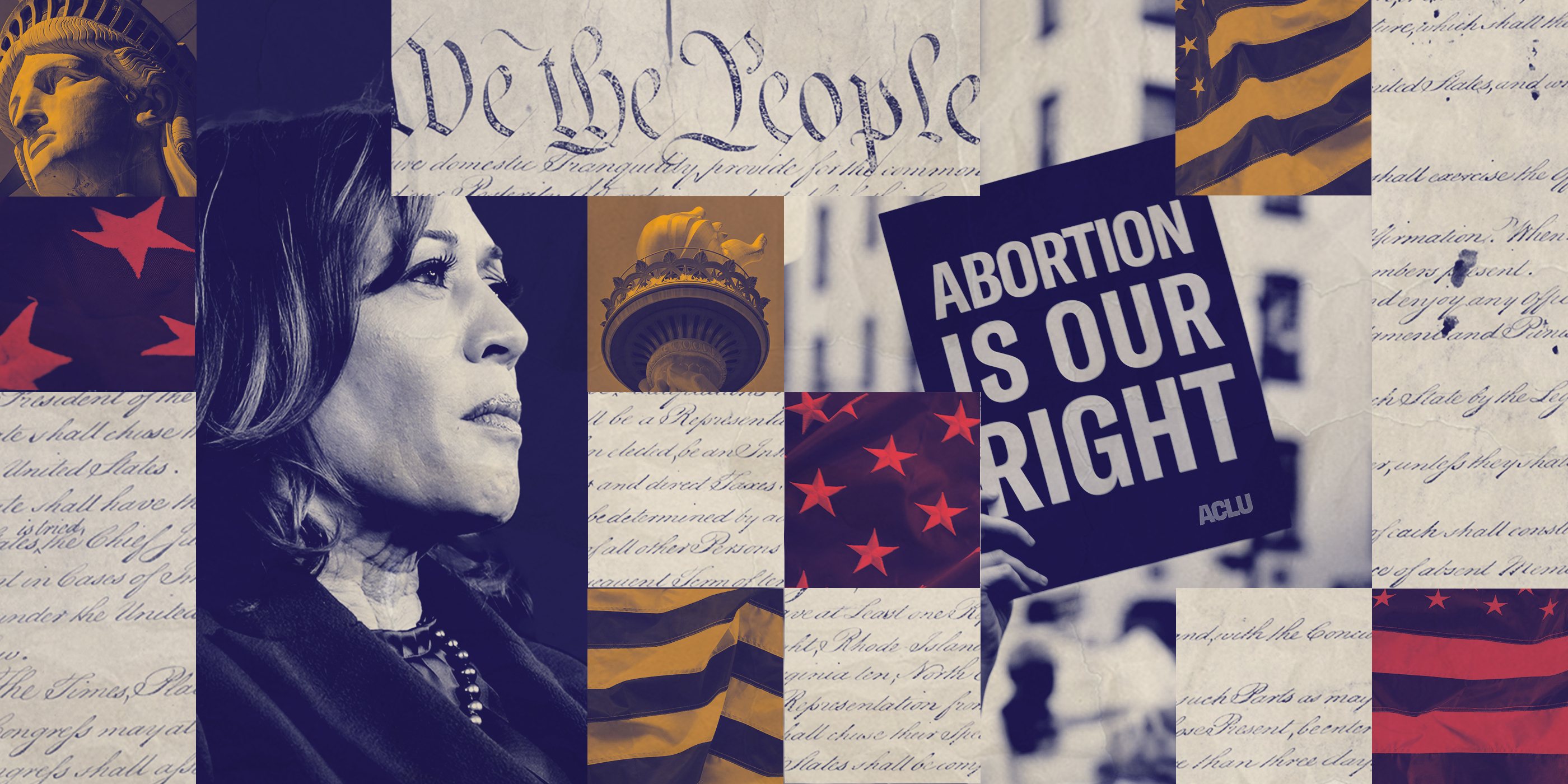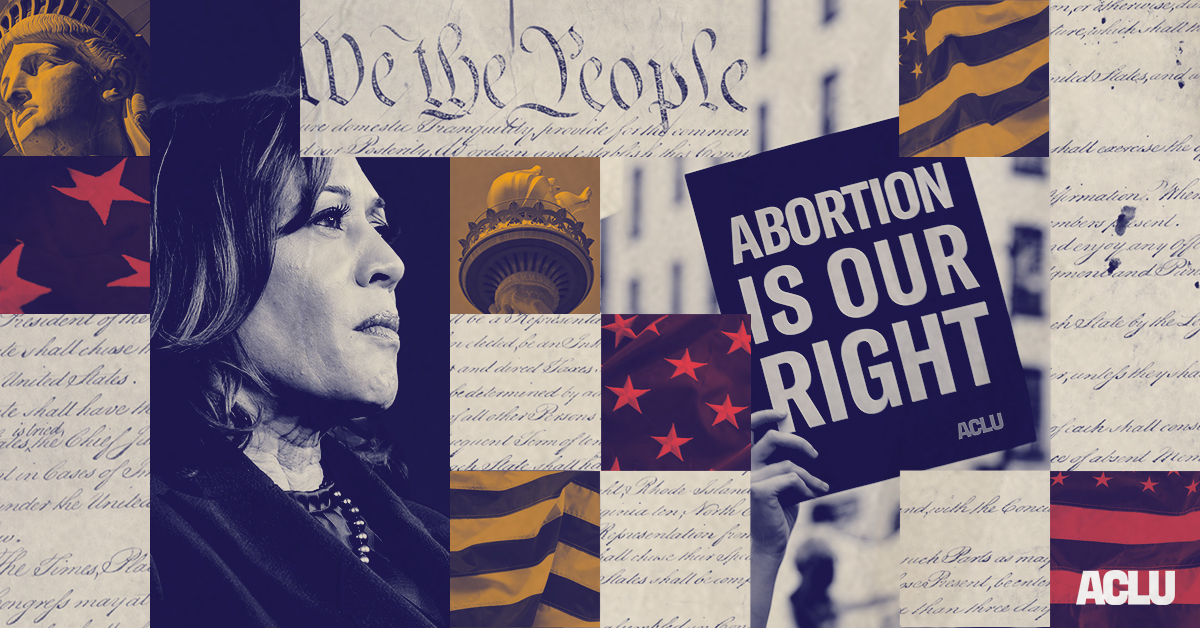This piece was published before Joe Biden withdrew from the 2024 presidential election and endorsed Vice President Kamala Harris to represent the Democratic Party. No significant facts have been changed or added.
Donald Trump has long identified himself as the candidate of “law and order” but, during the Trump administration, “law and order” translated to a severe approach to criminal punishment and policing that failed to make us safer.
Today, his proposed policies for a second term promise to double down on these ineffective tough on crime tactics. If reelected, a second administration threatens to accelerate mass incarceration and roll back decades of progress by encouraging aggressive policing practices, enacting draconian sentencing regimes, and expanding the use of the death penalty.
At the ACLU, we won’t let our country go backward. If Trump returns to office, we’re prepared to meet these unconstitutional policies with the same fierce response as we did during the last Trump administration. Learn more about our roadmap in our breakdown.
Trump on the Criminal Legal System
The Facts: According to Trump’s campaign, “there is no higher priority than quickly restoring law and order and public safety in America.” But, just as it was during President Richard Nixon’s 1968 campaign against the war on drugs, “law and order” under a second Trump administration is a “shorthand message promising repression of the Black community.”
Specifically, Trump’s law enforcement policies call for further protections for abusive police, including condoning the use of force against protesters, which he once described as a “beautiful thing to watch.” This rhetoric risks encouraging state actors to take a similarly brutal approach. Beyond rhetoric, however, Trump is also likely to immediately rescind President Joe Biden’s 2022 executive order on policing. Doing so would eviscerate one of the most substantial federal actions on police reform since George Floyd’s murder and roll back important changes to use of force standards, including restrictions on chokeholds and carotid restraints. These expected policies will have an outsized impact on marginalized communities, especially the Black community, which is far more likely to experience police abuse. We also know that a second Trump administration intends to deputize local law enforcement to aid an unprecedented mass deportation effort that would decimate communities.
Additionally, Trump has promised that, if reelected, his administration will accelerate mass incarceration efforts by directing federal prosecutors to seek the most serious charges and maximum sentences, pressuring local prosecutors to take a similarly draconian approach, and re-incarcerating thousands of people on home confinement. His administration will also expand the use of the death penalty – despite Americans’ increasing opposition to capital punishment – by broadening the category of crimes punishable by death, sentencing more people to die, and killing every person on federal death row.
While Trump will have a singular impact on the federal system, ultimately, state and local governments control most of the substantive parts of state criminal legal systems, including policing, prosecution, sentencing, and conditions in prisons and jails. Today, there are over 1.6 million people in state and local jails and prisons, compared to just over 200,000 in federal jails and prisons. But even without direct control of state systems, Trump will play an important role in setting the tone for state policies and many of his plans will have a ripple effect across the country.
Why It Matters: The Trump administration has already shown its capacity for brutal criminal legal system policies. In its final year, for example, the Trump Administration executed 13 people, more than half of whom were people of color. Trump executed more people than any administration in 120 years. Trump’s embrace of capital punishment is longstanding. In the 1980s, as a private citizen, he paid $85,000 from his own funds to publish a page-wide advertisement calling for the execution of five Black and Latine boys wrongfully accused as the “Central Park Five.”
But the impact of a second Trump administration doesn’t limit itself to any single area of the criminal legal system. He has proposed punitive policies that promise to dehumanize individuals at every point in the carceral system – from traffic stops to confinement conditions to sentencing. This tough on crime approach is also ineffective. Creating safe and healthy communities requires investing in programs that address the root causes of crime and disorder, like after-school programs, alternatives to policing, violence intervention teams, substance abuse treatment, employment pipelines, and affordable housing.
How We Got Here: During Trump’s time in office, he threatened to bring the National Guard into major cities to quell violence, and risk dangerously escalating tensions and exposing peaceful protestors to excessive or deadly force. He also encouraged the militarization of the police by rescinding President Barack Obama’s executive order limiting the distribution of military-grade weapons to state, local, and federal law enforcement agencies.
Trump and his administration were so committed to ineffective tough on crime policies that they even, at times, reversed their own progress on criminal legal system reform. In 2018, the ACLU worked with the Trump administration to secure the bipartisan First Step Act that then-President Trump signed into law. The First Step Act was significant legislation intended to improve federal prison conditions, reform overly harsh federal sentencing provisions, and provide increased programing and re-entry transition services to people incarcerated in federal prisons. Despite the promise of the Act, many of its key reforms were later undermined by the Trump administration.
Trump’s time in office also underscored the need to continue to hold his administration accountable for its unlawful actions. From 2017-2021, the ACLU filed more than 430 legal actions against the administration, including lawsuits aimed at defending the right to protest against police brutality, protecting the health and humanity of incarcerated people during the Covid-19 pandemic, and stopping mass surveillance by law enforcement.
Our Roadmap: If Trump returns to office, he can expect that he will be met with the same fierce response the ACLU brought during his last administration.
Specifically, we will use the courts to halt the Trump administration’s attempt to carry out one of, if not the largest, carceral events in our nation’s history: the senseless return to prison of nearly 3,000 individuals released on federal home confinement during the pandemic. Additionally, we will use litigation to challenge any efforts to return to unconstitutional methods of execution, and expose the racism and cruelty inherent in the death penalty, as we continue to seek its total abolition.
The ACLU will also advocate for Congress to constrain the funneling of military equipment to local police, fight for legislation to end sentencing disparities, and, under any administration, continue to push for the full implementation of the First Step Act. Importantly, we’ll use our expertise and resources to advise and assist members of Congress on how to prevent a future Trump administration from manipulating our legal system.
Lastly, since much of the American criminal legal system takes place at the state and local level, our state-level work will be more critical than ever with Trump in office. The ACLU and our affiliates will continue efforts to reduce opportunities for violent encounters with police, including by advocating for state use-of-force standards and the deprioritization of non-safety related traffic stops.
What Our Experts Say: “Trump has told us what he wants to do with a second term: fuel mass incarceration, encourage law enforcement to engage in unconstitutional policing practices, and expand the death penalty. We know from this country’s history that these extreme and immoral policies harm communities and infringe upon our rights and humanity. The ACLU is prepared to meet the Trump administration with the same fierce response as we did during his last term in office should he be reelected.” – Yasmin Cader, director of the ACLU’s Trone Center for Justice and Equality
What You Can Do Today: Congress can take action immediately to reduce disparities in our criminal legal system — starting by ending extreme sentencing. Send a message urging them to act today.
Date
Sunday, August 18, 2024 - 11:45amFeatured image
